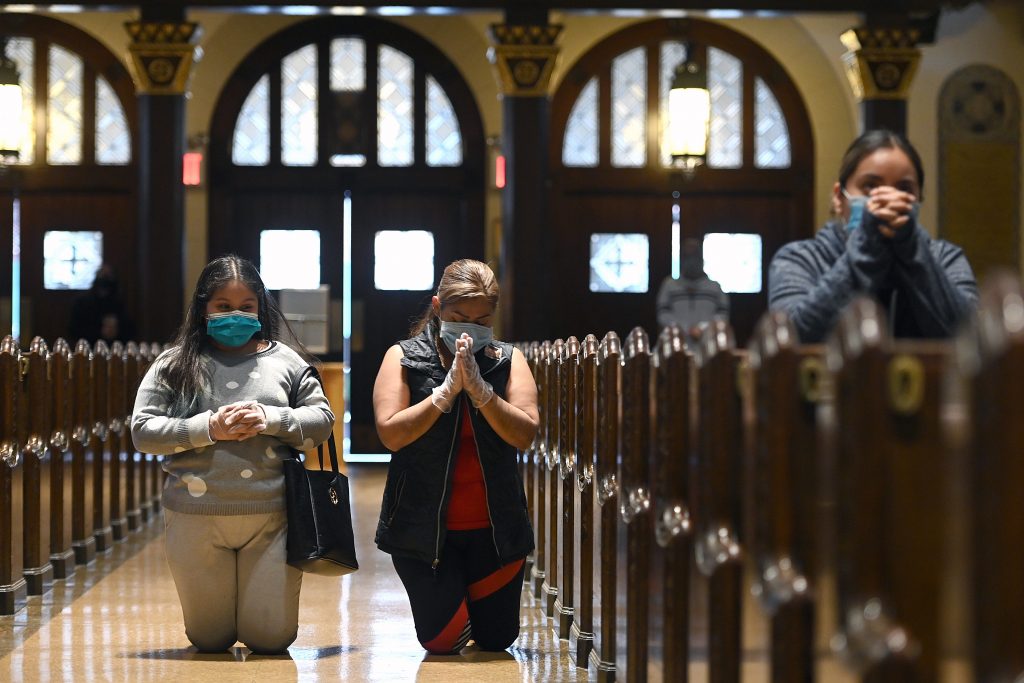Sometimes the truth gets lost in the failure to give contexts to “facts.” This is the case with last week’s widely-circulated Associated Press article, “Catholic Church lobbied for taxpayer funds, got $1.4B.”
AP’s editors and writers wanted to use the federal government’s Paycheck Protection Program for businesses hit hard by the coronavirus (COVID-19) pandemic, to put the Catholic Church in the United States in a bad light.
The first paragraph showed AP’s remarkable bias in leaving out significant details: “The U.S. Roman Catholic Church used a special and unprecedented exemption from federal rules to amass at least $1.4 billion in taxpayer-backed coronavirus aid, with many millions going to dioceses that have paid huge settlements or sought bankruptcy protection because of clergy sexual abuse cover-ups.”
The sentence is packed with words with emotional connotations. Details that would give readers a more complete picture of the situation are left out. You could gloss the paragraph this way:
“The U.S. Roman Catholic Church (along with other faith-based organizations including including other Christian, Jewish, and Muslim groups,)
used (applied for a government program to protect their employees’ paychecks and keep them from unemployment status,)
a special and unprecedented exemption from federal rules (exemptions granted to many faith-based institutions and was an emergency response to a crisis presented by the damaging effects of the pandemic on employees in all sorts of sectors of the economy — and what sort of rules are we talking about?)
to amass (that is, to receive moneys, like other employers — amass a loaded term usually used to connote a heaping up of riches)
at least $1.4 billion in taxpayer-backed coronavirus aid (out of $350 billion allocated by the program, making the Church’s share 0.4% of the whole deal, which includes for-profit and nonprofit employers.)
with many millions going to dioceses that have paid huge settlements or sought bankruptcy protection because of clergy sexual abuse cover-ups.” (these dioceses have thousands of employees who had nothing to do with the enormous settlements paid to abuse victims; these employees have spouses, children, homes, and bills that would go unpaid without this emergency Paycheck Protection Program. Dioceses that have sought bankruptcy protection also have employees that would be thrown out of work by the effects of the pandemic.)
Under the guise of a news analysis, the AP article seems to me a “hit job” ordered by an editor who said, “Tie in the settlements and anything else we can to make the Church look like it is taking advantage of taxpayer money.”
AP interviewed legal “experts” who spoke of “structural favoritism” in the Paycheck Protection Program, implying that by giving money to the Church, the program unjustly excluded other groups. But no evidence is provided to prove any such “structural favoritism.”
Marci Hamilton, a University of Pennsylvania professor and attorney who has represented sex abuse victims, said that allowing religious nonprofits to receive help from the Coronavirus Aid, Relief, and Economic Security Act (aka CARES Act) eroded the wall between church and state provided in the First Amendment. There is no such “wall of separation” language in the First Amendment, of course.
Hamilton reveals her own prejudice with this quote: “At this point, the argument is you’re anti-religious if in fact you would say the Catholic Church shouldn’t be getting government funding.” Why does she mention only the Catholic Church, and not Islamic, Jewish, and Protestant groups? Did not the catastrophe of shutting down the economy affect everyone the same, whether employed in the nonprofit or for-profit sectors?
AP was careful not to criticize Congress for the CARES Act, so one is left with the Catholic Church as the Big Bad Wolf. An unprecedented government relief program is decried for including Catholic entities, and no one from Congress is questioned?
A Latin American Nobel laureate wrote a novel about his first marriage that garnered much attention and was very successful commercially. His ex-wife self-published a book she titled, “What he left out.” Unfortunately few people read her reply.
As Jonathan Swift said, “Falsehood flies, and truth comes limping after it, so that when men come to be undeceived, it is too late; the jest is over, and the tale hath had its effect: like a man, who hath thought of a good repartee when the discourse is changed, or the company parted; or like a physician, who hath found out an infallible medicine, after the patient is dead.”
Here’s hoping that the AP story is not another example of Swift’s observation.

